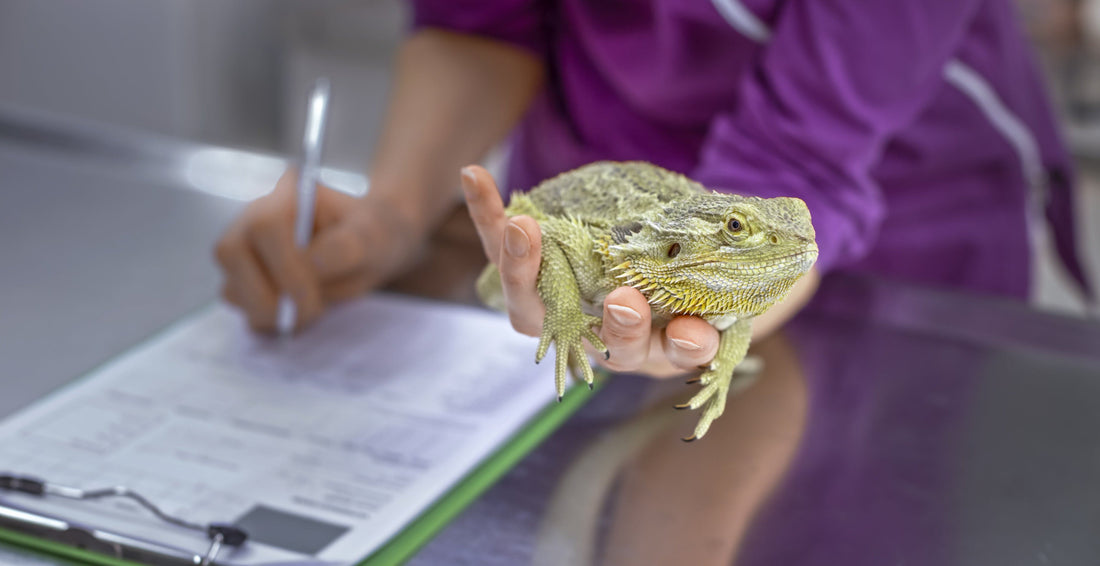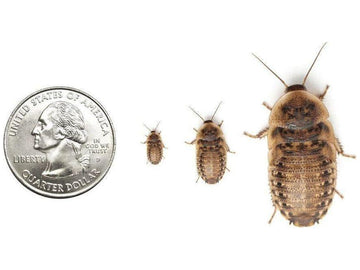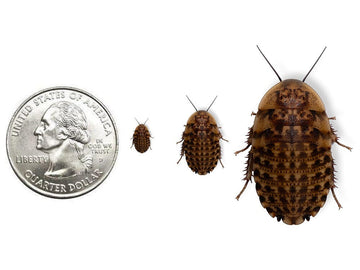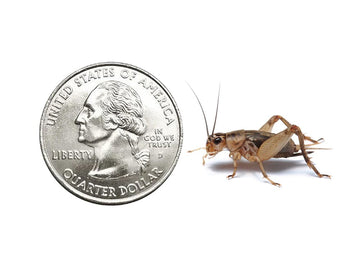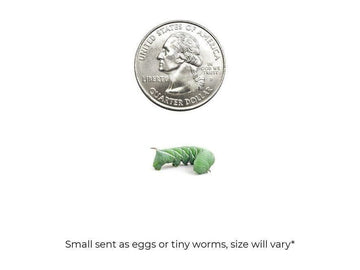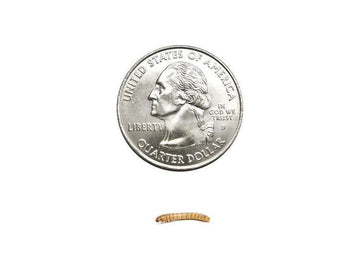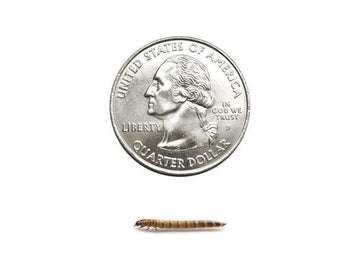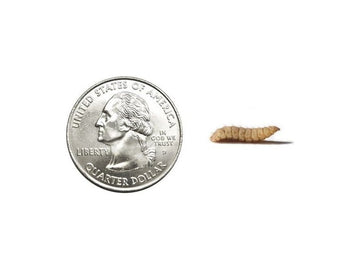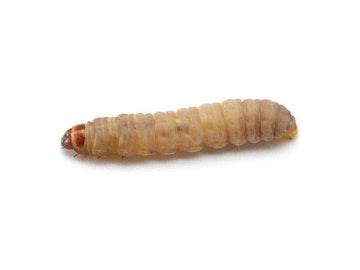As in most aspects of the reptile hobby, there are a lot of myths and misconceptions when it comes to reptile parasites, especially internal parasites. Let’s clear some things up, okay?
Crickets Are Major Carriers of Reptile Parasites
One of the first things that most people will tell you about feeder crickets is that you should stop using them because “they’re full of parasites.” Fun fact — crickets themselves are not the problem. It depends on the conditions that they’re kept in, and they’re not the only feeders that can transmit parasites. Any feeder insect kept in unhygienic conditions with poor-quality nutrition is likely to carry parasites.
Parasites Come from Feeder Insects
That being said, feeder insects aren’t the only source of parasites for your pet reptile. In fact, if you avoid wild-caught insects and purchase your feeder bugs from high-quality breeders with excellent sanitation and nutrition, the likelihood of getting parasites from feeder insects is pretty low.
Since parasites spread from infected animal to infected animal, breeders, pet stores, and even reptile rescues are more common vectors of parasites. Internal parasites can also come from other animals in your collection if you have a habit of sharing tools, equipment, or food between reptiles.
Snakes Don’t Get Internal Parasites
Snake mites are well known as external parasites, but what about on the inside? Can snakes get internal parasites? Yes, they can.
Snakes are generally less likely to get internal parasites than, say, lizards and turtles, but it can still happen. Snakes can get parasites from direct or indirect contact with infected snakes, and they can also get internal parasites from eating live prey. Fortunately, the freezing process kills almost all parasites found inside feeder rodents, etc. within about 30 days.
Internal Parasites Can Be Treated from Home
Unless you have the right equipment, are trained in how to perform a fecal float, can identify reptile parasites at a glance, know which deworming medications are safe for which species, and how to safely dose these medications, don’t attempt to treat internal parasites at home. You can potentially KILL your reptile with the wrong medication or dosage!
Instead, take a <24-hour-old fecal sample to an experienced reptile veterinarian for analysis. Better yet, take your reptile to the vet to get its cloaca swabbed for a fresher sample.
All Parasites Are Bad
Reptile parasites are freaky, but not all of them are necessarily bad. Some are commensals, which means that they do not have a particularly negative or positive effect on the host. However, do note that these can become harmful if the population gets out of control, such as when your reptile’s immune system gets worn down by poor husbandry or another illness.
Once Your Reptile Has Been Treated, It’s Parasite-Free for Life
Parasites come from external sources, so unless you eliminate the culprit, your reptile will likely need repeated, routine deworming (like cats, dogs, horses, and other pets). Getting a parasite check during your reptile’s annual check-up at the vet is considered good practice.
Furthermore, just because your reptile has been treated for one type of parasite doesn’t mean that it’s free of all parasites. Different deworming medications affect different parasites, so it’s totally possible for your reptile to still have parasites immediately after treatment.
A Clear Fecal Float Test Means That Your Reptile Has No Parasites
Fecal analysis generally checks for parasite eggs. Depending on when you get your reptile’s poo checked, it’s possible that your reptile isn’t currently shedding parasites and you’ll end up with a false negative. To really make sure that your pet is 100% clear, you need two or even three consecutive negative tests.
Your Reptile Will Go Back to Normal Immediately After Deworming
Although they’re not as severe as antibiotics, dewormers/antiparasitic medications can still be traumatic for a reptile’s system. Depending on the medication, it can decimate beneficial intestinal flora. Plus, parasites naturally damage your reptile’s organs and tissues. It’s a good idea to pair medication with reptile-specific probiotic paste or powder to assist recovery, but don’t be surprised if it takes a little while for your reptile to completely return to normal post-treatment.
It’s Impossible to Have a Parasite-Free Reptile
Too many reptile keepers accept parasites as a simple reality of keeping reptiles. It’s impossible to make your reptile 100% clear of parasites, but you can get pretty close — and that should be your goal. Excluding commensals, all parasites have a negative effect on their host’s health, so your pet will be all-around better off without them.
Humans Can Get Parasites from Pet Reptiles
Parasites are specialists, not generalists. They usually evolve to live and reproduce within a very specific type of animal. Sometimes they’re so specialized that they can only live inside a particular species. So a parasite that affects horses is unlikely to affect humans, even though we’re both mammals. And reptile parasites definitely can’t jump to mammals.
Conclusion
The key to understanding how to deal with internal parasites in your pet reptile(s) is knowing the facts about how they spread and what to expect from them. Now that you’re a bit better informed, you can become an even better reptile keeper!

